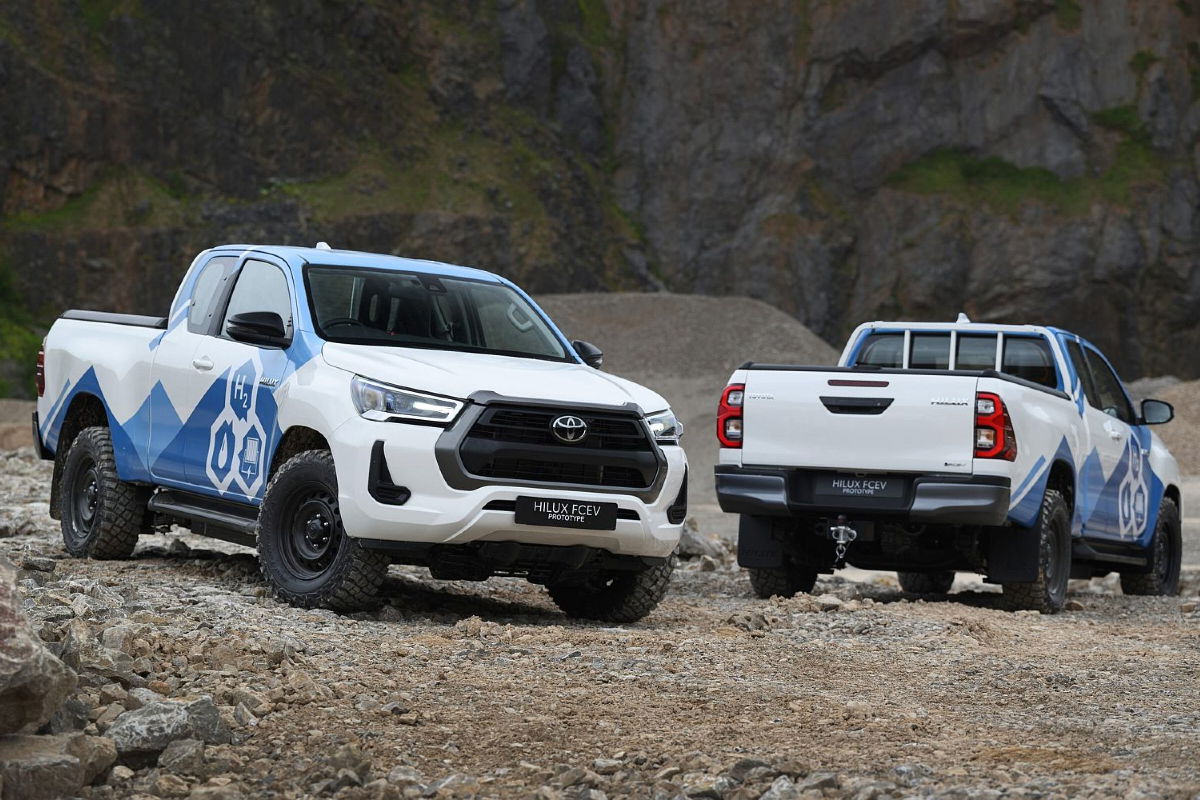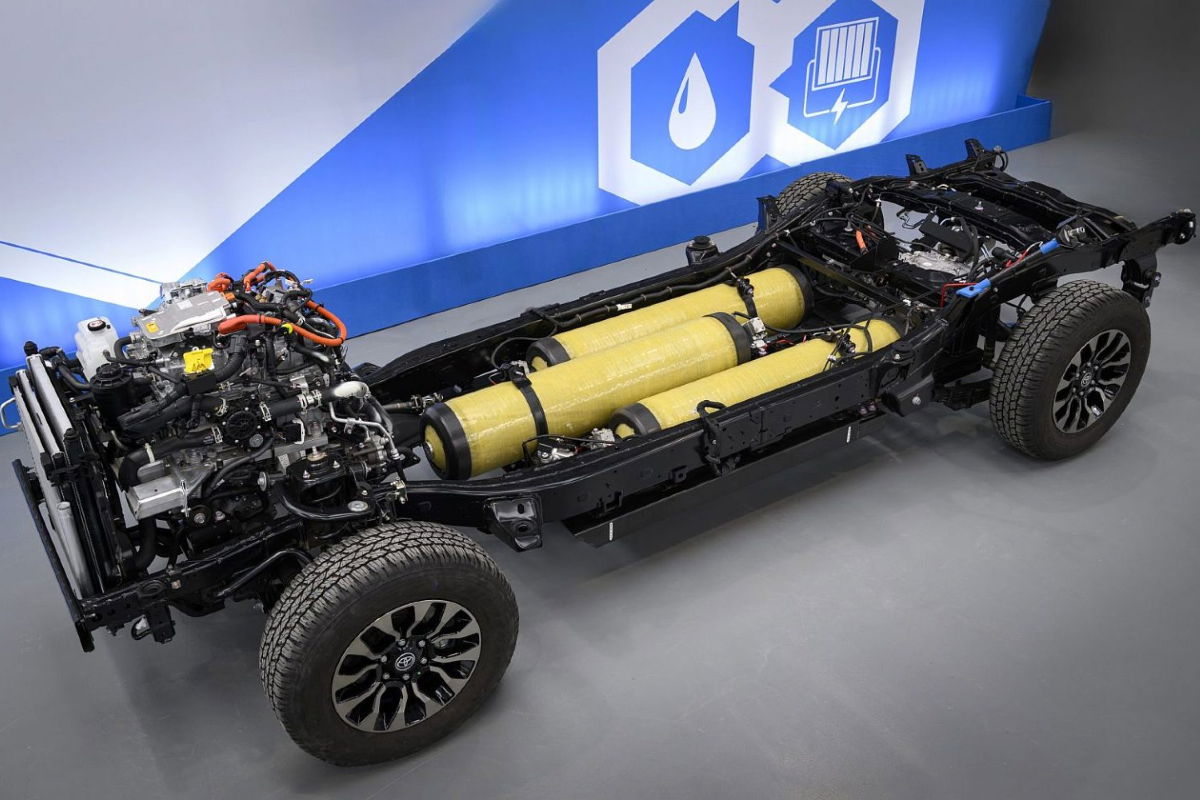
Forget an electric dual-cab ute, Toyota wants to sell you one that runs on hydrogen.
The Japanese auto-maker showed off an official working example of a hydrogen fuel-cell Hilux, previewing an alternative to the ever-popular battery electric vehicle (BEV) – and with some curious advantages and disadvantages.
The hydrogen fuel-cell Hilux uses bits from the (very low volume) Toyota Mirai fuel-cell sedan. Under the bonnet is a hydrogen fuel cell – which converts hydrogen into electricity, with only water vapour as a byproduct. Three hydrogen fuel tanks are mounted under the cabin.
The high pressure tanks can store 7.8kg of hydrogen, supplying range of about 600km – better than the probable 400km you could expect from a version with just a giant lithium-ion battery.

If you can get yourself to one of the 13 hydrogen refuelling stations in Australia, it’s certainly a lot quicker to refuel than plugging in an EV. Although one refuelling stop could cost you as much as $90. Yikes.
And while hydrogen might be the most abundant element in the universe, you won’t know true range anxiety until you’ve driven a car that runs on it.
This particular Hilux probably won’t be too good towing the Jayco, either. A single electric motor powers the rear wheels, producing 134kW and 300Nm.
On the plus side, Toyota points out that the lighter weight of the hydrogen fuel-cell system – versus a dirty big, heavy lithium-ion battery pack – means a higher payload and better towing capability. Two pretty important things for a ute.
Toyota said 10 examples of the hydrogen fuel-cell Hilux had been manufactured at its factory in Derby, England, and are now undergoing testing. There’s no word on what it could cost, although we’d guess it’d be enough to make any tradie choke on his Big M.

The hydrogen fuel-cell Hilux is unlikely to come to Australia, but it certainly previews an interesting alternative to the fully electric dual-cab utes headed our way in the next 12-18 months, many of them from China. That’s even if hydrogen fuel-cell technology has a long, long way to go.
Toyota continues to keep a few chips on hydrogen while the world’s other auto-makers go all-in on EVs. Toyota plans to launch in Europe a third-generation hydrogen fuel-cell architecture in 2026-2027 with “higher power density and an expected 20 percent increase in driving range” as well as being cheaper by up to a third. With governments around the world seeing the merits of hydrogen-based renewables – and investing appropriately – Toyota could yet have the last laugh.
Is hydrogen the answer over lithium-ion battery electric vehicles? Why or why not? Let us know in the comments or join the discussion on social media.












Discussion about this post